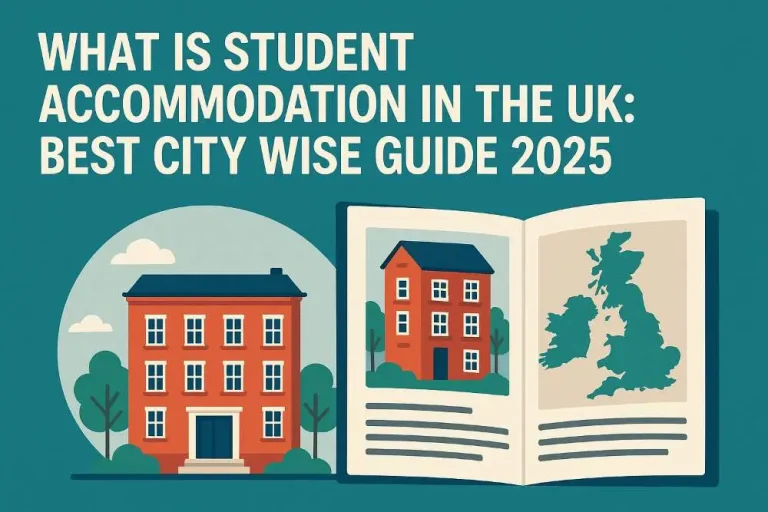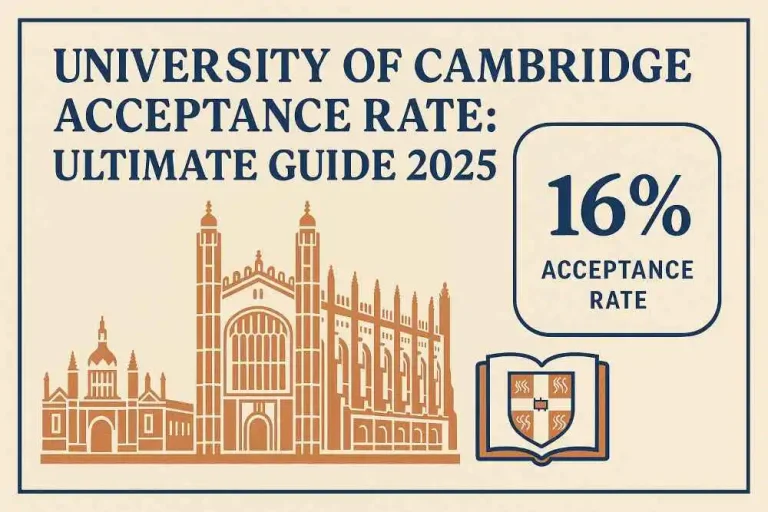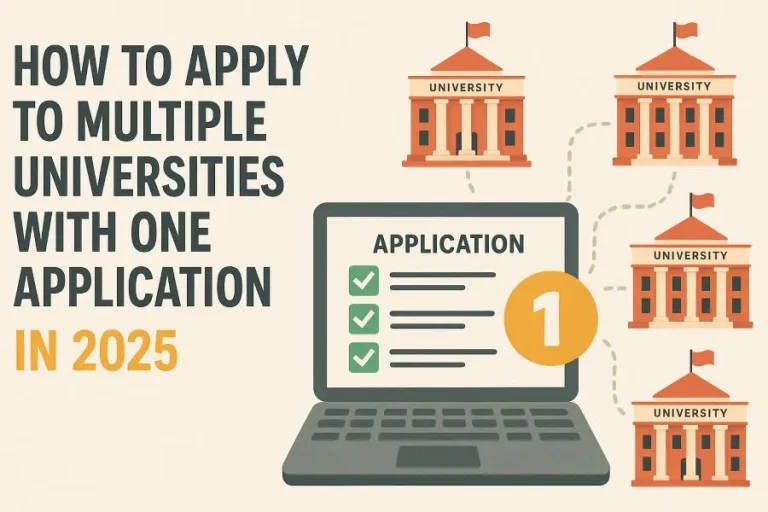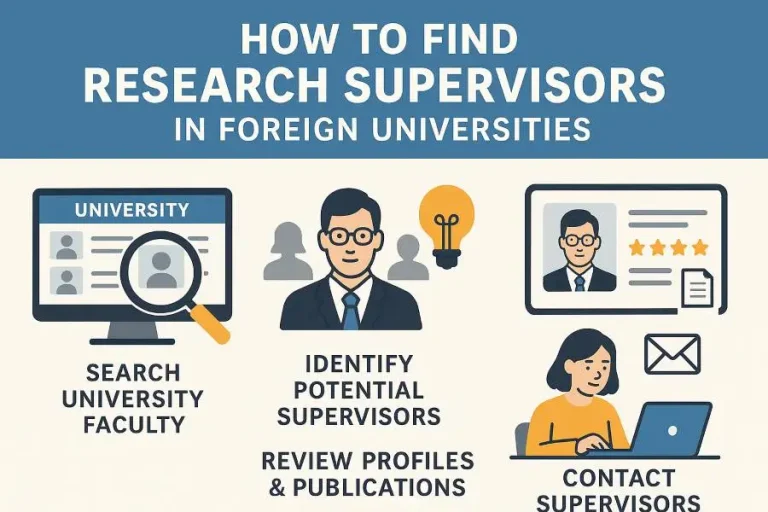Are you feeling overwhelmed by the constantly changing UK student visa landscape? You’re not alone. With recent policy shifts causing a 14% drop in visa applications and new restrictions affecting thousands of international students, navigating study abroad requirements has become more complex than ever.
The good news? By understanding the latest Visa Trends & Legal Tips, you can significantly increase your chances of success. By the end of this comprehensive guide, you’ll know the current visa statistics, understand new policy changes, master the application process, and discover proven strategies to avoid common rejection pitfalls.
Current UK Student Visa Trends & Legal Tips: What the Numbers Reveal
The UK student visa landscape has experienced significant shifts in 2024-2025, creating both challenges and opportunities for prospective international students.
Key Statistics and Market Overview
According to official UK government data, the student visa market showed notable changes in 2024. The UK issued 393,000 main applicant study visas in 2024, a decrease of 14% compared to the previous year. However, early 2025 data suggests a recovery trend, with applications showing renewed growth.
The visa rejection rate remains encouragingly low. UK student visa trends show a low rejection rate of 3–5%, countries like the USA and Australia have higher rejection rates. For instance, in 2024, the USA had a 10% rejection rate. This positions the UK as a relatively accessible destination for international education.
Major Source Countries and Market Dynamics
China continues to dominate the international student market. There were 102,942 sponsored study visa grants to Chinese main applicants in 2024 (26% of the total), similar to the previous year. In the latest year, a majority (59%) of Chinese students came to the UK to study for a masters level qualification.
Indian students represent the second-largest group, accounting for 23% of total applications. Emerging markets are also showing strong growth, with surging demand from Nepal and Pakistan suggests resilience in key markets despite overall application decreases.
Success Rates by Demographics
Success rates vary significantly by nationality and application type. The overall UK student visa success rate has remained robust, with reports indicating approval rates between 90-99% for well-prepared applications. Child Student visas showed particular strength, with Child Student visas were up 11.5% compared to the first three quarters of 2022.
Major Legal Changes Affecting UK Student Visas in 2025
Understanding recent policy changes is crucial for successful visa applications. The UK government has implemented several significant reforms that directly impact international students.
Dependent Visa Restrictions
One of the most impactful changes affects family accompaniment. Starting January 2024, international students cannot bring dependents (partner or child under 18) to the UK via their student visa. The only exception is for students with a postgraduate research programme visa, who can still bring dependents.
This restriction has had immediate effects on application patterns. Year ending January 2025: Only 21,500 (84% decrease). With restrictions limiting dependent visas to postgraduate research students and those studying at specific qualification levels.
Graduate Visa Modifications
The Graduate Route has undergone substantial changes. Reducing the standard length of the Graduate visa, for international students to stay on and work in the UK, from two years to 18 months. Additionally, From July 17, 2023, international students must complete their original course of study before switching to a Graduate visa.
Enhanced English Language Requirements
Language requirements have become more stringent. English language requirements will now apply to more applicants, including dependants, and improvement in language ability will be monitored. This affects not only primary applicants but also any eligible family members.
Institutional Compliance Changes
Universities face stricter oversight requirements. Institutions must meet higher compliance thresholds on the Basic Compliance Assessment (BCA), with: Pass marks increased by 5%. A new Red/Amber/Green rating for all sponsors. These changes ensure only high-quality institutions can sponsor international students.
Step-by-Step Guide to UK Student Visa Success
Navigating the visa application process requires careful planning and attention to detail. Here’s your comprehensive roadmap to success.
Step 1: Confirm Your Eligibility and Visa Type
Before beginning your application, determine which visa category applies to your situation:
- Student Visa (General): For students 16 and over studying at undergraduate, postgraduate, or higher education levels
- Child Student Visa: For students under 18 attending independent schools
- Short-term Study Visa: For courses lasting 6 months or less
Ensure your chosen institution holds a valid Tier 4 sponsor license and can issue a Confirmation of Acceptance for Studies (CAS).
Step 2: Secure Your Educational Prerequisites
Obtain all necessary academic qualifications and English language certifications. Most universities require:
- Academic transcripts with certified English translations
- English language test results (IELTS, TOEFL, or PTE Academic)
- Degree certificates and academic references
- Personal statement or statement of purpose
Step 3: Gather Financial Documentation
Financial requirements have become more stringent. You must demonstrate:
- Tuition fees: Full first-year fees or remaining balance
- Living costs: £1,334 per month for London-based studies or £1,023 per month for other areas
- Additional funds: If applicable, for dependents (though now restricted)
Acceptable financial evidence includes bank statements, education loans, or official financial sponsorship letters.
Step 4: Complete Your Online Application
Access the UK government’s official visa application portal and:
- Fill out Form VAF9 completely and accurately
- Upload all supporting documents in the specified formats
- Pay the visa application fee (currently £490)
- Pay the Immigration Health Surcharge (£470 per year)
Step 5: Book and Attend Your Biometric Appointment
Schedule your biometric data collection at an authorized center. Bring:
- Valid passport
- Printed application confirmation
- All original documents
- Biometric appointment confirmation
Step 6: Track Your Application Progress
Use the UK government’s online tracking system to monitor your application status. Processing times typically range from 15-20 working days, though priority services are available for faster processing.
Common Visa Rejection Reasons and How to Avoid Them
Understanding why applications fail helps you avoid costly mistakes and delays.
Financial Documentation Issues
Insufficient or unclear financial evidence causes numerous rejections. Common problems include:
- Bank statements older than 31 days
- Funds not maintained for minimum 28-day periods
- Unclear source of funds or suspicious transactions
- Incorrect calculation of required amounts
Solution: Maintain consistent bank balances, provide clear documentation, and calculate requirements precisely using official guidance.
Academic Qualification Problems
Educational credential issues frequently derail applications:
- Unrecognized qualifications or institutions
- Missing or incomplete academic documents
- Inadequate English language scores
- Grade equivalency confusion
Solution: Use UK NARIC for qualification recognition, ensure all documents are certified, and exceed minimum English requirements where possible.
Problems with your educational sponsor can cause immediate rejection:
- Invalid or expired CAS numbers
- Discrepancies between CAS details and application information
- Institutional compliance problems
- Course start date issues
Solution: Verify all CAS details carefully, maintain communication with your institution’s international office, and ensure course information accuracy.
Personal Circumstances Concerns
Immigration officers assess your genuine student intention:
- Inadequate explanation of study plans
- Unclear career progression logic
- Previous visa compliance issues
- Insufficient ties to home country
Solution: Provide comprehensive personal statements, demonstrate clear study-to-career pathways, and maintain transparent immigration history.
Financial Requirements and Cost Breakdown for 2025
Understanding the complete financial commitment helps you prepare adequately for your UK education journey.
Application Fees:
- Standard Student Visa: £490
- Priority Service: £979 (additional £489)
- Super Priority Service: £1,538 (additional £1,048)
Immigration Health Surcharge:
- £470 per year of intended stay
- Calculated based on course duration
- Required for NHS access during studies
Living Cost Requirements
The UK government sets minimum financial thresholds:
London-based Studies:
- £1,334 per month for living costs
- Multiply by course duration (maximum 9 months calculated)
- Additional £560 per month for dependents (where applicable)
Non-London Studies:
- £1,023 per month for living costs
- Same duration calculation method
- Lower dependent costs but similar requirements
Additional Hidden Costs
Budget for often-overlooked expenses:
- Document translation and certification: £200-500
- English language testing: £150-200
- Travel to biometric appointments: £50-200
- Courier services for document submission: £50-100
- Priority appointment booking: £100-300
Financial Planning Strategies
Successful applicants often employ these approaches:
- Maintain funds 20-30% above minimum requirements
- Use education loans from recognized financial institutions
- Secure official sponsorship letters with detailed breakdowns
- Plan for exchange rate fluctuations if holding foreign currency
Regional Differences in Visa Processing and Requirements
Visa processing varies significantly based on your country of application and regional factors.
Processing Time Variations
Faster Processing Regions:
- European Economic Area: 10-15 working days
- North America: 12-18 working days
- Australia/New Zealand: 10-20 working days
Standard Processing Regions:
- China and East Asia: 15-25 working days
- India and South Asia: 20-30 working days
- Middle East and Africa: 20-35 working days
Complex Processing Regions:
- Some Sub-Saharan African countries: 30-60 working days
- Certain Middle Eastern countries: 25-45 working days
- Countries with limited UK diplomatic presence: 40-80 working days
Document Requirements by Region
Different regions may require additional documentation:
Higher Scrutiny Countries:
- Additional financial verification
- Enhanced academic credential checks
- More detailed sponsor verification
- Extended background security clearances
Streamlined Processing Countries:
- Reduced documentation requirements
- Faster background check processes
- Lower rejection rates historically
- More predictable processing timelines
Regional Success Rate Patterns
Success rates show notable regional variations:
- European applicants: 95-98% success rate
- North American applicants: 92-96% success rate
- East Asian applicants: 88-94% success rate
- South Asian applicants: 85-92% success rate
- African applicants: 80-90% success rate (varies significantly by country)
Expert Tips for Strengthening Your Application
Industry professionals and successful applicants share proven strategies for visa approval.
Documentation Excellence
Create a Document Checklist:
- Organize documents chronologically
- Include cover letters explaining each section
- Provide certified translations for non-English documents
- Maintain both digital and physical copies
Quality Control Measures:
- Review all forms multiple times before submission
- Have native English speakers review personal statements
- Verify all dates, names, and numbers for consistency
- Ensure photograph specifications meet exact requirements
Strategic Application Timing
Optimal Submission Windows:
- Apply 3-6 months before course start dates
- Avoid peak processing periods (June-September)
- Consider regional holidays and processing center closures
- Account for potential delays or additional document requests
Planning for Contingencies:
- Prepare backup study options and CAS alternatives
- Maintain flexible travel arrangements
- Budget for potential reapplication costs
- Consider priority processing for time-sensitive applications
Professional Support Utilization
When to Seek Help:
- Complex financial situations requiring professional explanation
- Previous visa refusals or compliance issues
- Unique personal circumstances needing careful presentation
- High-stakes applications with significant investment involved
Choosing the Right Support:
- Select regulated immigration advisers (OISC registered)
- Verify advisor experience with student visa categories
- Request success rate statistics and client references
- Understand fee structures and service scope clearly
Future Outlook: What’s Coming Next for UK Student Visas
Staying informed about upcoming changes helps you plan effectively for your educational journey.
Anticipated Policy Developments
Graduate Route Reviews: The Migration Advisory Committee continues reviewing the Graduate visa scheme. The Migration Advisory Committee will review the Graduate visa in early 2025, potentially leading to further changes. This could affect post-study work opportunities significantly.
Enhanced Digital Processing: From January 2025 onwards, you must register with UK Visas and Immigration (UKVI) and apply for an eVisa. This digital transformation aims to streamline processing and improve security.
Institutional Quality Measures: Universities face increasing compliance requirements, with Mandatory participation in the Agent Quality Framework for using recruitment agents ensuring only reputable intermediaries operate in the market.
Market Predictions for 2026-2027
Application Volume Trends: Despite 2024’s decline, market indicators suggest recovery. Emerging markets show strong interest, and established source countries maintain steady demand. The low rejection rate continues attracting international students compared to alternative destinations.
Competitive Positioning: The UK’s efficient processing and post-study opportunities maintain competitive advantages. However, increased competition from Canada, Australia, and European countries may influence future policy directions.
Strategic Considerations for Prospective Students
Timing Your Application:
- Consider applying for 2026 entry to avoid current policy uncertainty
- Monitor Graduate Route review outcomes before making commitments
- Plan alternative pathways if post-study work options change
Course Selection Strategies:
- Prioritize postgraduate research programs for dependent visa eligibility
- Choose institutions with strong compliance ratings
- Consider Scottish universities for potentially different policy applications
Your Path to UK Study Success
Navigating UK student visa requirements in 2025 requires careful planning, thorough preparation, and staying current with policy changes. While recent restrictions have created new challenges, the UK remains an accessible and attractive destination for international education.
The key to success lies in understanding the current landscape: a 14% application decrease in 2024 followed by early 2025 recovery, low rejection rates of 3-5%, and evolving policies affecting dependents and post-study opportunities. By following the step-by-step application process, avoiding common rejection pitfalls, and preparing comprehensive financial documentation, you significantly increase your approval chances.
Remember that successful visa applications require more than just meeting minimum requirements. Excellence in documentation, strategic timing, and professional guidance when needed can make the difference between approval and disappointment.
Your UK education journey represents a significant investment in your future. Don’t navigate the complex visa process alone – expert guidance can save time, money, and stress while maximizing your success probability.
Ready to begin your UK study abroad journey with confidence? Uninist specializes in supporting international students throughout their UK education experience. From visa guidance to finding the perfect student accommodation, our expert team understands the unique challenges you face. Book a free consultation with Uninist today and take the first step toward your UK academic success. Let us help you transform your study abroad dream into reality with personalized support every step of the way.
FAQ
What are the basic UK student visa requirements for international students in 2025?
UK student visa requirements include a valid passport, Confirmation of Acceptance for Studies (CAS) from a licensed sponsor, proof of English proficiency, financial evidence showing £1,334/month for London (£1,023 elsewhere), academic transcripts, and payment of the £490 visa fee plus Immigration Health Surcharge. The process typically takes 15-20 working days with a 95% approval rate for well-prepared applications.
How much money do I need to show for a UK student visa application?
Financial requirements vary by location: £1,334 per month for London-based studies or £1,023 per month for other UK areas, plus full tuition fees for the first year. Funds must be maintained for 28 consecutive days before application. Additional costs include £490 visa fee and £470 annual Immigration Health Surcharge, totaling approximately £15,000-25,000 annually.
Can I bring my family with me on a UK student visa?
Since January 2024, international students cannot bring dependents (spouse/children) unless studying postgraduate research programmes. This restriction caused an 84% decrease in dependent visas to just 21,500 in 2025. Only PhD and research master’s students can bring family members, making accommodation planning crucial for separated families during studies.
What is the UK student visa success rate and rejection rate?
UK student visa success rates remain high at 95-97% for well-prepared applications, with rejection rates of only 3-5%. This compares favorably to the USA’s 10% rejection rate. Common rejection reasons include insufficient financial evidence, incomplete documentation, and academic qualification issues. Proper preparation significantly increases approval chances.
How long does UK student visa processing take in 2025?
Standard UK student visa processing takes 15-20 working days from most countries. Processing varies by region: Europe (10-15 days), North America (12-18 days), Asia (15-25 days), and some African countries (30-60 days). Priority services are available for £489 additional fee, reducing processing to 5 working days.
What English language requirements do I need for a UK student visa?
English language requirements depend on your course level and nationality. Most students need IELTS Academic (minimum 5.5-7.0), TOEFL iBT, or PTE Academic scores. Some students from majority English-speaking countries or with UK/US degrees may be exempt. Enhanced requirements now apply to more applicants, including dependents where eligible.
Can I work while studying on a UK student visa?
UK student visa holders can work up to 20 hours per week during term time and full-time during holidays. University students have more flexible work rights than those at other institutions. After graduation, the Graduate Route allows 18 months (reduced from 2 years) to work in the UK, though this is under review for 2025.
What documents do I need for a UK student visa interview?
UK student visa interviews require your passport, CAS letter, academic transcripts with English translations, English language certificates, financial statements (28-day history), tuberculosis test results if applicable, and evidence of accommodation arrangements. Organize documents chronologically with cover letters explaining each section for better presentation during assessment.
How do recent UK visa policy changes affect new applications?
Major 2024-2025 changes include dependent visa restrictions (except research students), Graduate Route reduction to 18 months, enhanced English requirements, and stricter institutional compliance. Student visa applications decreased 14% in 2024 but show recovery signs in early 2025, with China (26%) and India (23%) remaining top source countries.
What should I do if my UK student visa application is rejected?
If rejected, review refusal reasons carefully, address specific issues mentioned, and gather additional supporting evidence. You can reapply immediately with improved documentation or request an administrative review within 28 days if you believe an error occurred. Consider professional immigration advice for complex cases or multiple rejections.








